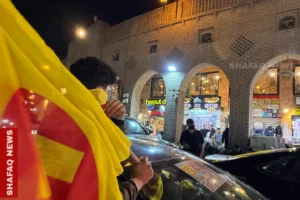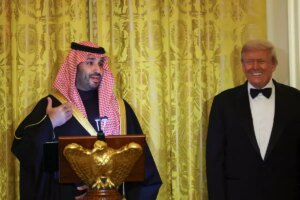
Shafaq News
With Hamas announcing its conditional approval to engage in
talks based on US President Donald Trump’s plan, including a ceasefire, hostage
release, and the handover of Gaza’s administration to an independent
Palestinian body, fresh questions are emerging over the future of the regional
conflict.
While some interpret the agreement as a potential step
toward de-escalation, many analysts argue that the end of the Gaza war could
mark not peace, but a dangerous pivot toward a broader regional confrontation.
Many increasingly point to Iran, Lebanon, and Iraq as potential flashpoints in
what may be an evolving, multi-front conflict.
Turning the Conflict Toward Tehran
From Jerusalem, Israeli affairs expert and historian Hussein
al-Deek warned that a Gaza truce does not signal the end of war, “it could mark
the beginning of a more perilous phase.”
Speaking to Shafaq News, al-Deek argued that Israeli Prime
Minister Benjamin Netanyahu will likely seek to prolong his political survival
by “engineering new fronts,” noting that he had already “instrumentalized
the Gaza war over the past two years to consolidate his grip on power.”
According to al-Deek, a new strategic understanding is
forming among Israel, the US, and European powers to redirect confrontation
toward Iran. “There is a growing consensus to contain Iran, dismantle its
nuclear and missile programs, and sever its regional supply lines,” he said.
For Tel Aviv, he added, “Gaza, Lebanon, and Yemen are
peripheral arenas — the core threat is Tehran. Israel sees regime change in
Iran as the most efficient route to disable its regional proxies.”
He predicted that Israel would use the Gaza ceasefire as a
diplomatic window to build international momentum against Tehran — especially
following the failure of the 12-day war in June and the collapse of the 2015
nuclear deal.
Escalation Risks in Lebanon and Iraq
International relations scholar Firas Elias described
Hamas’s acceptance of the Trump plan as a “strategic turning point” that could
push Israel to open new fronts, particularly in Lebanon and Iraq.
“There’s an organic link between the theaters of conflict,”
Elias told Shafaq News, adding that “Israel may see value in shifting
confrontation to other arenas, especially amid sustained tensions with
Hezbollah.”
He pointed to recent Iranian diplomatic movements in Beirut
and Baghdad as indicators of looming escalation. “Tehran is updating its
military doctrine, expanding cyberwarfare capabilities, and recalibrating its
proxies — signs that the next round of clashes may erupt first in Lebanon and
potentially spill into Iraq.”
Elias concluded that “the end of active hostilities in Gaza
may not be a resolution, but a prelude to more expansive conflicts across the
Middle East.”
US Strategy and Israeli Leverage
Habib al-Hadi, an Oman-based researcher in international
relations, argued that the US is seeking to entrench itself as the dominant
power in the region, with Israel acting as its political and military proxy.
Speaking to Shafaq News, al-Hadi suggested the Gaza
agreement may serve as groundwork for a larger confrontation between Israel and
Iran, warning that such a shift would “have severe repercussions for the entire
region.”
He cast doubt on the sustainability of the ceasefire,
describing it as “a tactical pause rather than a durable solution.”
“What appears to be calm may in fact be strategic
repositioning — a prelude to conflict on a new front.”
“Fragile Agreement,” Political Cover
From Moscow, Assef Melhem, Director of the JSM Research
Center, voiced skepticism over the motives behind Hamas’s approval of the Trump
plan. He argued that the move aimed to deflect international pressure and shift
responsibility to Arab mediators and sponsors.
Speaking to Shafaq News, Melhem expressed concern that
“Israel will exploit the agreement to expand its influence, while Arab states
will push to restore Gaza to the Palestinian Authority — all without meaningful
leverage over either Israel or the US”
He warned that Netanyahu could weaponize the agreement as a
political shield while intensifying pressure on Iran, leveraging global support
for sanctions and unresolved doubts about Tehran’s nuclear program.
Melhem stressed that Trump’s proposal will not resolve the
core of the Palestinian issue, as Israel continues to reject the establishment
of a Palestinian state. “This leaves the door wide open for a wider regional
conflict — particularly with the Iranian file still unresolved and susceptible
to escalation at any time.”
Written and edited by Shafaq News staff.





